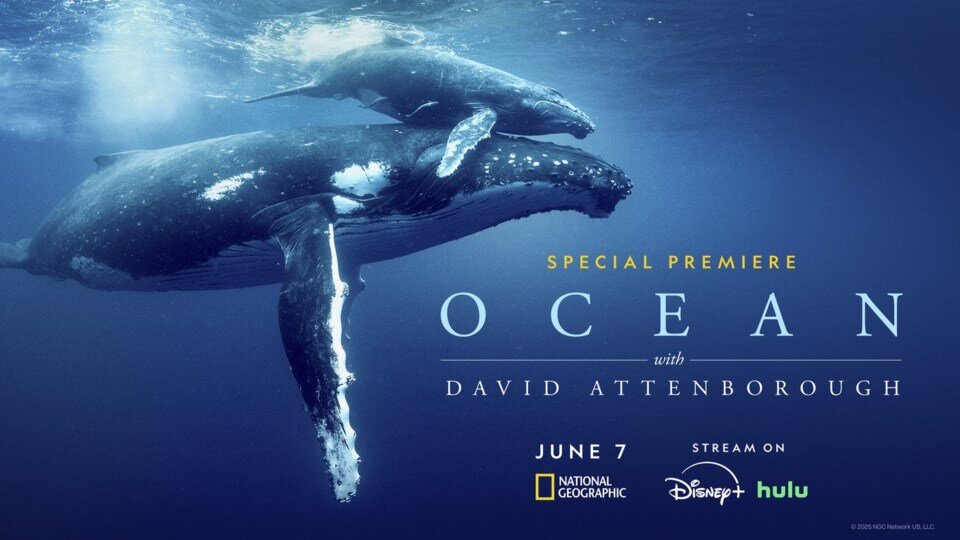Bottom Trawling Is Destroying Our Oceans — But a Global Tipping Point May Have Just Begun
A major announcement from the UK at this week’s UN Ocean Conference, a powerful new David Attenborough documentary, and a global movement could finally signal the beginning of the end for one of the most destructive fishing practices on Earth.
What Is Bottom Trawling and Why Should You Care?
Imagine a bulldozer dragging massive nets across a rainforest floor, tearing through everything in its path — trees, animals, roots, even the soil. Now picture that same destruction happening underwater. That’s bottom trawling.
Bottom trawling is an industrial fishing method where heavy nets weighted with metal rollers are dragged across the seafloor, scooping up everything in their path — fish, corals, sponges, and often entire ecosystems. It’s used primarily to catch high-demand species like cod, haddock, shrimp, and sole.
But the collateral damage is devastating.
Key Facts About Bottom Trawling
Destroys marine habitats: Up to 98% of seafloor organisms in a trawled area can be obliterated in a single pass.
Carbon bomb: Bottom trawling disturbs carbon-rich sediment, releasing up to 1 gigaton of CO₂ annually — equivalent to emissions from the entire aviation industry.
Wasteful and inefficient: It can result in over 40% bycatch—marine creatures caught unintentionally, many of which die and are discarded.
Vast scale: Bottom trawling accounts for over 25% of global catch in some regions and affects millions of square kilometers of ocean every year.
A Turning Point? UK Takes a Stand at the UN Ocean Conference
At this week’s UN Ocean Conference in Nice, the UK government announced it will ban bottom trawling in all Marine Protected Areas (MPAs) within its waters — a landmark move that ocean conservationists are calling a “breakthrough moment”.
This decision follows mounting scientific evidence and years of public pressure. The UK now joins a growing list of nations and coalitions, from the EU to the Pacific Island states, calling for a global moratorium on destructive bottom trawling, especially in protected zones.
Could this be the domino that sparks global reform?
David Attenborough’s New Documentary Ocean Exposes Bottom Trawling Like Never Before
The urgency of bottom trawling is powerfully captured in David Attenborough’s latest documentary, Ocean, which premiered just weeks before the UN Ocean Conference.
For the first time ever on film, Ocean reveals the devastating reality of bottom trawling. Attenborough calls it “an underwater scorched-earth policy,” showcasing unprecedented footage of trawl nets dragging across fragile seabeds — flattening vibrant coral gardens and leaving behind ghostly deserts on the ocean floor.
This stark visual evidence has sparked widespread public attention and intensified calls for governments worldwide to take immediate action against this destructive fishing practice.
What’s Happening Around the World?
While the UK’s announcement is hopeful, the global picture remains mixed:
Europe: While some EU nations support bottom trawling bans in MPAs, countries like Spain and France continue to operate large trawl fleets.
Asia: China, the world’s largest fishing nation, has a significant fleet of bottom trawlers, including in international waters.
South America & Africa: Often targeted by foreign trawl fleets due to weak enforcement, causing both ecological and economic harm to local communities.
High seas: In international waters, bottom trawling remains largely unregulated and rampant, particularly on vulnerable seamounts and deep-sea ecosystems.
Why This Matters for Marine Life — and for Us
Healthy oceans are not just home to astonishing biodiversity — they’re our life support system.
Oceans absorb over 25% of global CO₂ emissions and generate half the oxygen we breathe.
Damaging the seabed undermines carbon storage, accelerates climate change, and destroys breeding grounds for countless marine species.
Coastal communities — especially in the Global South — rely on intact marine ecosystems for food, income, and cultural identity.
By eliminating bottom trawling, we’re not only protecting fish and corals — we’re safeguarding the future of the planet and ourselves.
The Bigger Picture: A Race to Restore, Not Just Protect
The tide is turning. From new satellite surveillance of illegal trawlers to campaigns for a UN High Seas Treaty enforcement mechanism, efforts to end bottom trawling are gaining traction.
But this moment calls for more than bans.
It calls for restoration — of damaged seabeds, of climate-storing carbon sinks, of fish populations, and of our relationship with the ocean.
And perhaps most importantly, it calls for us to rethink what sustainable fishing really means.
Our Call to Action
If you’ve never heard of bottom trawling until now, you’re not alone. But now that you do, share this. Talk about it. Support marine protections. And watch Ocean with David Attenborough — because awareness is the first step to change.
Organizations Fighting Bottom Trawling You Can Support
Greenpeace
An international environmental organization campaigning against destructive fishing practices, including bottom trawling, by advocating for stronger marine protected areas and sustainable fishing policies.
Website: https://www.greenpeace.orgOceana
The largest international advocacy group focused solely on ocean conservation. Oceana works globally to end bottom trawling, promote sustainable fisheries, and protect marine habitats.
Website: https://oceana.orgThe Marine Conservation Society (MCS)
A UK-based charity dedicated to protecting seas, shores, and wildlife. MCS campaigns to ban bottom trawling in Marine Protected Areas and raise public awareness.
Website: https://www.mcsuk.orgBlue Marine Foundation
Focuses on restoring ocean health through the establishment and enforcement of marine reserves and pushing for sustainable fishing methods, including opposition to bottom trawling.
Website: https://www.bluemarinefoundation.comThe Pew Charitable Trusts – Protecting Our Oceans
Runs campaigns to promote science-based ocean policies, including efforts to restrict bottom trawling, especially in international waters.
Website: https://www.pewtrusts.org/en/projects/protecting-our-oceansSeas At Risk
A coalition of European NGOs advocating for stronger EU policies on fisheries and marine conservation, including ending bottom trawling in vulnerable habitats.
Website: https://seas-at-risk.org


